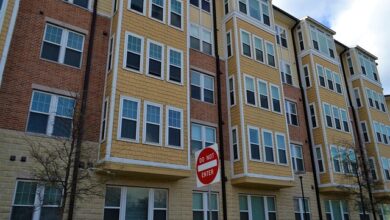How to Save Money While Living in the Netherlands

Living in the Netherlands is a rewarding experience, thanks to its high quality of life, excellent infrastructure, and rich cultural heritage. However, the cost of living can be relatively high, especially in cities like Amsterdam, Rotterdam, and Utrecht. Fortunately, there are plenty of ways to save money without compromising on comfort or enjoyment. In this article, we’ll share practical tips and strategies to help you stretch your budget while living in the Netherlands.
1. Housing: Your Biggest Expense
Rent is typically the largest expense for residents in the Netherlands. Here’s how to reduce housing costs:
a. Share Accommodation
- Renting a room in a shared apartment (kamerhuur) is significantly cheaper than renting an entire flat.
- Websites like Kamernet , Pararius , and HousingAnywhere list affordable shared housing options.
b. Live Outside Major Cities
- Consider moving to smaller towns or suburbs near major cities. For example:
- Instead of Amsterdam, try Haarlem, Amstelveen, or Zaandam.
- Instead of Rotterdam, explore Delft, Schiedam, or Spijkenisse.
- Commuting by train or bike is efficient and often affordable.
c. Negotiate Rent
- If renting directly from a landlord, negotiate the rent or ask for a discount if paying upfront for several months.
- Always check whether utilities (gas, water, electricity) are included to avoid surprises.
d. Temporary Housing
- Use platforms like Airbnb or Booking.com for short-term stays until you find a long-term rental.
- Avoid expensive furnished apartments unless absolutely necessary.
2. Transportation: Embrace Cycling
The Dutch love their bicycles, and for good reason—it’s one of the cheapest and most sustainable modes of transport.
a. Buy a Second-Hand Bike
- Purchase a used bike from local markets, Facebook groups, or websites like Marktplaats .
- Basic city bikes cost between €50–€150, compared to new models that start at €300+.
b. Use Public Transport Wisely
- Get a discounted public transport card:
- OV-chipkaart: Preload credit for trains, trams, and buses.
- Student OV-chipkaart: Students receive up to 40% off travel fares.
- Avoid peak hours (6:30 AM–9:00 AM and 4:00 PM–6:30 PM) to save on ticket prices.
c. Walk or Carpool
- Many Dutch cities are compact and pedestrian-friendly. Walking saves money and keeps you active.
- Join carpooling apps like BlaBlaCar for occasional trips outside the city.
3. Groceries: Shop Smart
Food expenses can add up quickly, but smart shopping habits can help you save.
a. Choose Budget Supermarkets
- Opt for budget-friendly chains like Aldi , Lidl , or Action instead of pricier stores like Albert Heijn.
- Compare prices using apps like Heldere Prijs or Zoekjeprijs.nl .
b. Cook at Home
- Eating out frequently can drain your wallet. Dutch restaurants charge around €10–€20 per meal.
- Prepare meals in bulk and freeze portions for later use.
c. Visit Local Markets
- Farmers’ markets (like those in Amsterdam’s Noordermarkt or Rotterdam’s Markthal) offer fresh produce at lower prices.
- Haggle politely to get better deals.
d. Take Advantage of Discounts
- Look for “aanbiedingen” (special offers) in supermarkets.
- Use loyalty cards or apps like Picnic for affordable grocery deliveries.
4. Utilities and Bills: Reduce Monthly Costs
Utility bills can be another significant expense. Here’s how to minimize them:
a. Energy Providers
- Switch to cheaper energy suppliers like Budget Energie or Vandebron .
- Compare rates using comparison tools like Independer or Geld.nl .
b. Conserve Energy
- Turn off lights, unplug devices, and use energy-efficient appliances.
- Install LED bulbs and consider solar panels if you own your home.
c. Internet and Phone Plans
- Bundle internet, TV, and phone services with providers like T-Mobile , KPN , or VodafoneZiggo for discounts.
- Check for student or promotional deals.
5. Leisure and Entertainment: Enjoy Without Breaking the Bank
The Netherlands offers countless free or low-cost activities to enjoy.
a. Free Events
- Attend festivals, open-air concerts, and museum nights (e.g., Museumnacht).
- Explore parks like Vondelpark (Amsterdam), Keukenhof Gardens (spring only), or Hoge Veluwe National Park.
b. Discount Passes
- Use the Museumkaart for unlimited access to museums across the country.
- Students and young adults can get the CJP Card for discounts on movies, concerts, and more.
c. Borrow Instead of Buy
- Libraries lend books, DVDs, and even board games for free.
- Swap clothes, furniture, or electronics through second-hand platforms like Marktplaats .
d. Outdoor Adventures
- Go hiking, cycling, or kayaking in nature reserves like De Biesbosch or Texel Island.
- Spend weekends exploring charming villages like Giethoorn or Kinderdijk.
6. Healthcare: Make the Most of Insurance
Healthcare in the Netherlands is mandatory but manageable with smart choices.
a. Choose the Right Plan
- Compare basic health insurance plans annually during the open enrollment period (November–December).
- Use tools like Zorgwijzer or Independer to find affordable options.
b. Add Exclusions
- Opt for voluntary excess (eigen risico) to lower premiums. The maximum excess is €385 per year.
- Skip unnecessary extras like dental or alternative medicine coverage if you don’t need them.
c. Stay Healthy
- Preventive care reduces medical costs. Attend routine check-ups and maintain a healthy lifestyle.
7. Education and Work: Leverage Student Benefits
If you’re studying or working in the Netherlands, take advantage of perks designed to ease financial burdens.
a. Student Discounts
- Access reduced fees for public transport, software subscriptions, and cultural events.
- Use platforms like UNiDAYS or Student Beans for exclusive offers.
b. Part-Time Jobs
- Work part-time as a student or freelancer to supplement income.
- Popular gigs include hospitality, tutoring, or delivering food via apps like Thuisbezorgd or Uber Eats .
c. Tax Refunds
- File annual tax returns to claim deductions for tuition fees, commuting costs, or work-related expenses.
8. Miscellaneous Tips
Here are some additional ways to cut costs:
a. Clothing and Household Items
- Shop second-hand at thrift stores, charity shops, or online marketplaces like Marktplaats .
- Wait for seasonal sales (e.g., winter or summer sales) to buy essentials.
b. Travel Smart
- Use NS International for affordable train tickets to neighboring countries.
- Book flights early or use budget airlines like Ryanair or EasyJet.
c. DIY Projects
- Learn basic repair skills to fix things yourself instead of hiring professionals.
- Grow herbs or vegetables at home to save on groceries.


